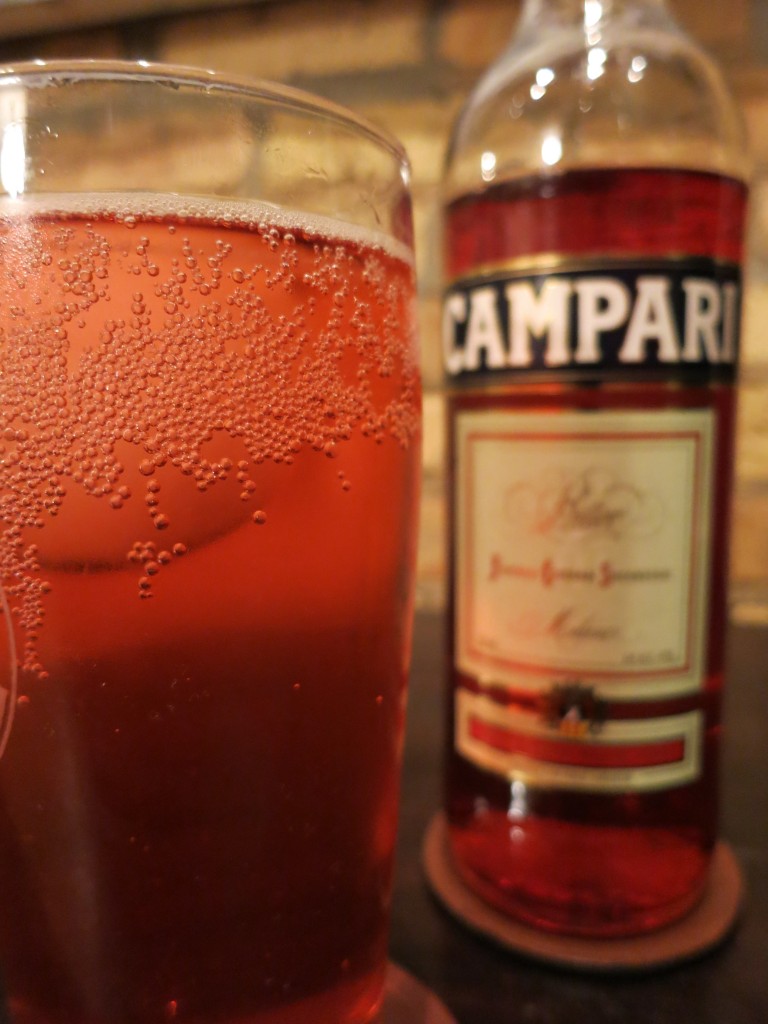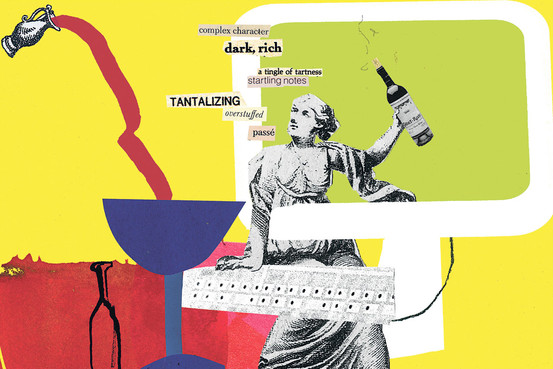Campari Reconsidered
Along with the free sample of Cynar I recently received, the sales representative included a bottle of Campari, Cynar’s much more famous cousin. This bitter bright-red liqueur is famous as the key component of cocktails such as Campari and orange juice, and Campari and soda. These rather simple cocktails taste fine, but honestly they have never thrilled me.
Yet I knew Campari could be a fascinating ingredient. Alone, it has a bitter medicinal taste leavened with sweetness and a brightly herbaceous, parsley-like overtone. On the rocks, it’s an effective digestif, but I prefer it in cocktails. The Negroni, for example, combines gin, sweet vermouth and Campari to great effect. I decided a little experimentation was in order.
According to Iconic Spirits by Mark Spivak, Campari came about as a backlash against the sweet vermouths popular in northern Italy in the mid- to late 19th century. The formula remains the same today as it did at the time of its invention around 1860, when Gaspare Campari “decided to infuse sixty herbs, spices, barks, and fruit peels into a mixture of alcohol and distilled water.” That year, Campari created a sensation in Milan when he opened up Caffé Campari and began serving his concoction to customers. Spivak writes that as of 2012 (when Iconic Spirits was published), sales of Campari had grown to 27 million bottles each year.
Popular though Campari and orange juice may be, my favorite mixology buddy and I decided that it was time to come up with something a little more interesting to do with Campari. Inspired by the Negroni, we started with gin and Campari, and eventually settled on the additions of ginger liqueur and lemon. The result tasted very zippy, spicy and sweet, but with a grounding bitterness provided by the Campari. I loved the balance of this cocktail, as well as the pretty pink-orange color. I’ll call it the Milano, after the hometown of Caffé Campari:
MILANO
–2 parts gin (we used Death’s Door)
–1 part Campari
–1/2 part ginger liqueur (we used Koval)
–1/4 part fresh-squeezed lemon juice (do not use bottled)
Combine all the ingredients above in a shaker with ice, shake vigorously, and strain into a martini glass. Garnish with a twist of lemon or orange, if you’re feeling fancy.
We also used the Campari and soda cocktail as an inspiration, goosing it up to give it a little extra pizzazz. This drink, which I’ll call the Gaspare, tasted wonderfully refreshing, a little sweet and a little bitter, making it a fine aperitif for both summer and winter afternoons:
GASPARE
–4 parts club soda
–1/2 part fresh-squeezed lime juice (do not use bottled)
–1/4 part simple syrup (1 part sugar dissolved in 1 part water)
–1 part Campari
Pour the club soda over ice, add in the lime juice and simple syrup, and stir. Then pour in the Campari, and garnish with a twist of lime or orange. The lime juice adds tartness as well as textural interest, and the simple syrup enhances the flavors. Sugar in a cocktail often acts like salt in food, enlivening flavors and bringing the various elements together.
These drinks surely only scratch the surface of Campari’s possibilities. With bitter-tinged cocktails becoming ever more popular, and rightly so, a bottle of Campari (or other bitter like Cynar or Fernet-Branca) helps complete the well-stocked home bar.






